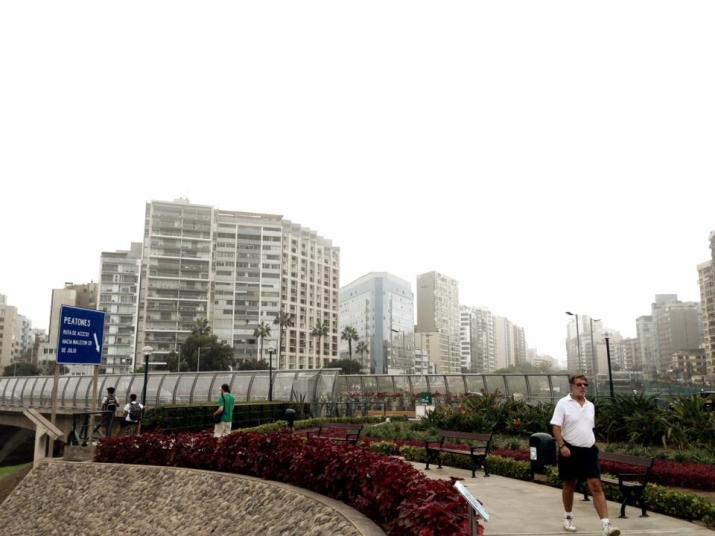
It is winter in Lima, and the temperature ranges from 55 to 70 degrees Fahrenheit. The surest sign of the season, though, is the incessantly cloudy sky.
Published June 8, 2016, last updated on October 17, 2017 under Voices of DGHI
By Manish Nair
As I explore Lima, Peru, on the first day of my eight weeks here, I am awash with an amalgamation of emotion.
Of course, I am excited that I have now set foot on six continents! But apart from such flippant sentiment, I am looking forward to experiencing life in a very different place and to doing work that I hope will make a difference in some lives.
But I do feel a weight of responsibility. Having received an independent research grant from the Duke Global Health Institute (DGHI), and with supervision hundreds of miles and an eight-hour plane ride away, I have been asked whether I am overwhelmed with the time and tasks I have before me. Strangely, I am not. I think I'm ready to take on this project, and I'm determined to tackle the open-ended challenges that await. Even if the steps forward are uncertain, I do feel confident in my ability to adapt and be resourceful.
It would perhaps be appropriate to introduce the project that I will be working on. Professor Nimmi Ramanujam, along with her team in the Center for Global Women’s Health Technologies, invented the POCkeT (Point-Of-Care Tampon) colposcope to increase accessibility of screening for cervical cancer. Cervical cancer is the leading cause for cancer-related deaths among women of age 15-44 in Peru.
Today, women have to go to a clinic to begin the screening process for cervical cancer. First, a Pap smear is taken. If the Pap smear result is irregular, the patient is then referred to have a colposcopy done. The current standard-of-care colposcopy involves the use of a speculum to part the vaginal walls of the patient so as to obtain a clear view of the cervix. Then, a camera is used to magnify the image of the cervix and visually inspect for lesions. If a lesion is suspected, the physician then does a biopsy to do further testing, and if that is positive, a LEEP procedure is done to excise the lesions from the cervix. If diagnosed and treated early, adverse health effects from cervical cancer can be circumvented; in the United States, cervical cancer mortality has decreased by more than 50% in the last 30 years due to improvements in screening and treatment.
The issue is that current screening rates for cervical cancer are low in Peru. Not only do many people not have easy access to treatment procedures, the need for the use of the speculum (which is incredibly uncomfortable [or so I surmise from observation]) further deters women—not to mention the stigma associated with having a genital examination done.
The POCkeT colposcope, however, is very mobile and portable (hence its name) and will eventually be able to connect to a smartphone. This is significant because it then allows for trained healthcare workers to conduct the colposcopy procedure in the absence of a physician; the images from the colposcope can be sent to a gynecologist to diagnose remotely. The POCkeT colposcope also costs about 15 times less than the current standard-of-care colposcope, while acquiring images of equal, if not better, quality. It is also a trans-vaginal device that will eventually be able to operate without a speculum; removing that barrier to screening as well. The POCkeT colposcope is still undergoing clinical trials, but these are going well and the device should become available for use before long.
My research focuses on formulating a global value chain for POCkeT. This involves studying different elements of the life-cycle of the product and identifying the main hurdles that need to be overcome in order to increase the adoption and distribution of the device. Specifically, I'm trying to determine the distribution channels for healthcare technology in Peru, so that we can utilize those for POCkeT. To this end, I will be speaking with government officials, healthcare providers and other stakeholders over the course of the next two months.
There is a lot to do, and many parts of the objectives I need to meet are still uncertain, but I am relishing the challenge. Tomorrow I'll meet our local collaborators on the project at La Liga Contra el Cancér, Dr. Venegas and Yenny. That should set things in motion. Follow my future posts to keep updated!
For now, I think I shall enjoy a plate of ceviche.


